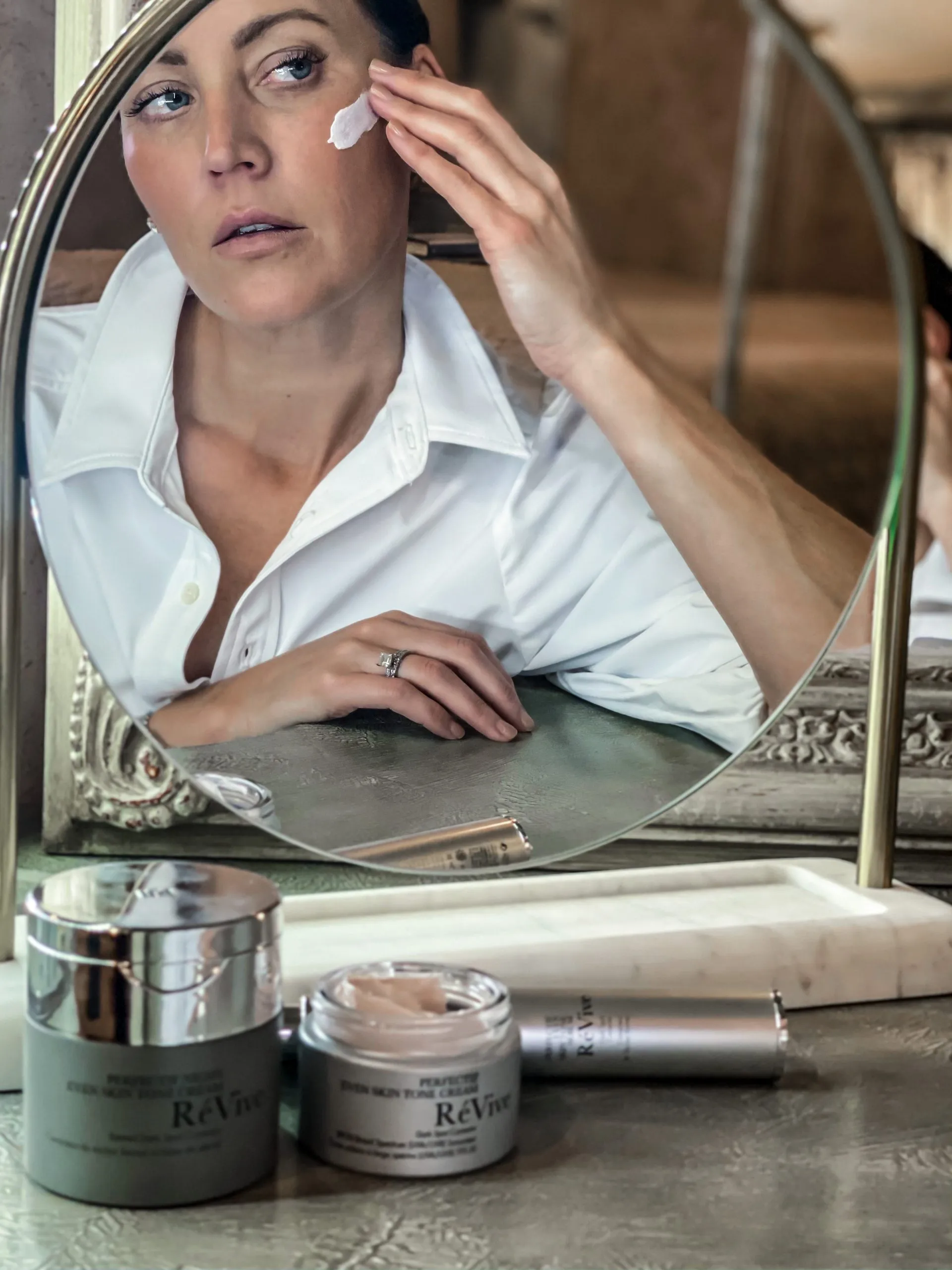One of the most meaningful ways we can care for our skin is by keeping it deeply hydrated. Healthy, hydrated skin isn’t just about looking glowing on the surface, it supports a strong skin barrier, prevents irritation, reduces the appearance of fine lines, and maintains firmness and elasticity. When your skin is properly hydrated, it feels plump, balanced, and comfortable. But when hydration levels drop, dehydrated skin becomes dull, tight, rough, and more prone to irritation and premature aging.
There are so many everyday factors that can drain the skin of moisture: weather changes, harsh skincare products, age, stress, certain medications, dehydrating ingredients, low water intake, and even cleansing with hot water. Because of these, maintaining hydration isn’t something that happens on its own, it requires intentional steps and supportive skin care habits.
So today, I’m sharing a complete guide on How to Hydrate Skin, including how to identify signs of dehydration, the benefits of keeping the skin hydrated, the best hydrating products and hydrating ingredients to look for, and a full breakdown of practical, dermatologist-approved tips that help keep your skin healthy and glowing from the inside out.
Also, be sure to check out my post here on the best Korean Skincare Routine to keep your skin healthy and hydrated.
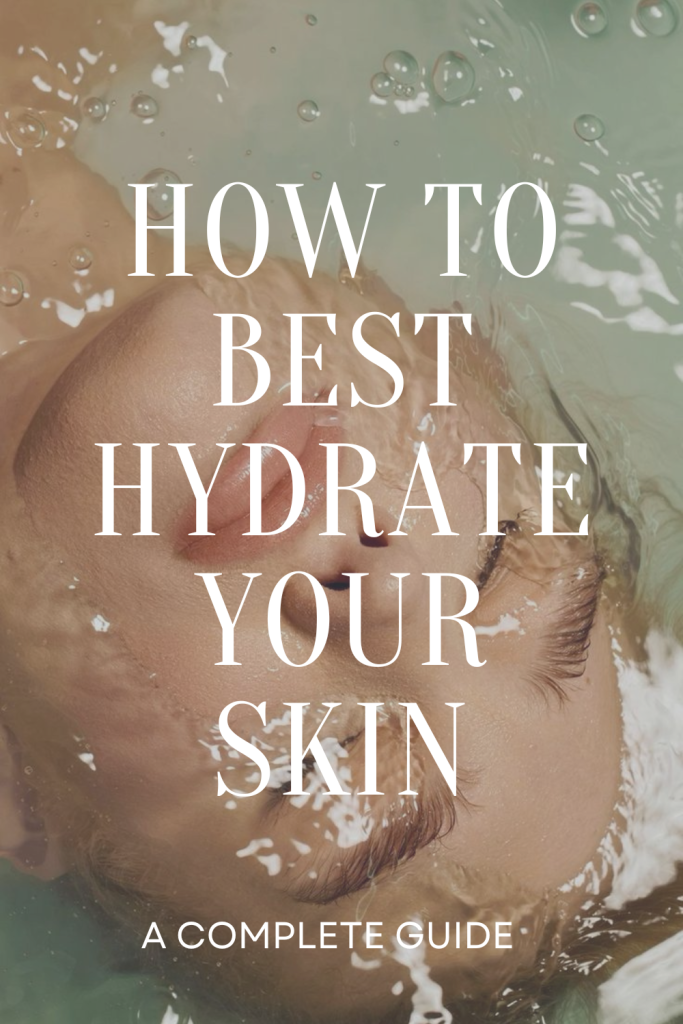
How to Hydrate Skin
Hydrated skin looks dramatically different from dehydrated or dry skin. In this post, I’ll walk you through what makes hydrated skin unique, why it matters for skin health, and also what you can do to add moisture to the skin at multiple levels. You’ll learn how to select ingredients that improve hydration, how to layer products correctly, and how to protect your skin so it stays balanced and resilient.
Whether your skin is oily, combination, normal, acne-prone, or dry, all skin types need hydration. And the best part is: with the right approach, you can see visible improvements in your skin feeling and texture quickly.
What Does Hydrated Skin Look Like
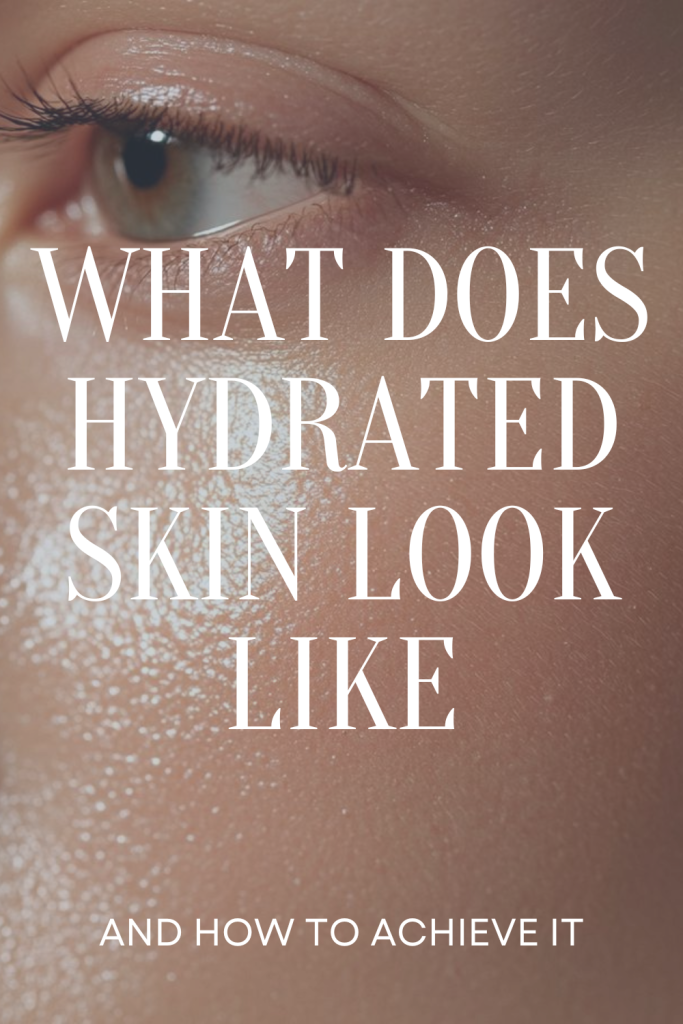
Hydrated skin appears smooth, supple, and naturally radiant. When the skin cells are full of water and functioning properly, the surface reflects light beautifully and makeup applies more evenly. Plumpness is one of the biggest signs of healthy hydration, the skin rebounds when touched, instead of feeling tight, thin, or fragile.
Key Visual Signs of Hydrated Skin
- A soft, bouncy texture that feels cushioned and resilient
- A healthy glow rather than dullness
- Minimal flakiness or rough patches
- Less noticeable fine lines and creasing
- Even skin tone with reduced redness or irritation
- A fresh, dewy appearance on high points like cheeks and forehead
In comparison, dehydrated skin may appear papery, patchy, tired, or uneven, and often feels tight after cleansing.
What Hydrates Skin
Below are the most effective ingredients and products proven to help add moisture, rebuild the skin barrier, and restore comfort to dehydrated or dry skin.
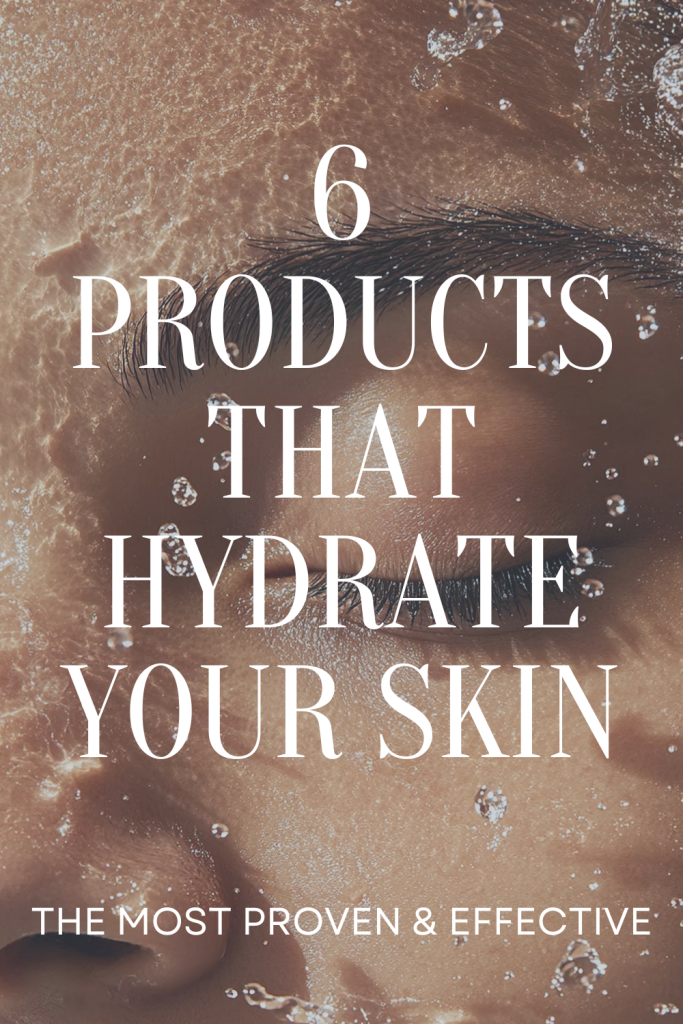
Hyaluronic Acid
Hyaluronic acid is one of the most powerful hydrating ingredients because it can hold up to 1,000x its weight in water. It pulls moisture into the skin and helps maintain hydration levels throughout the day. Apply to damp skin for best absorption and then layer a moisturizer on top to seal it in.
Ceramide-Rich Moisturizers
Ceramides strengthen the skin barrier, overall helping the skin retain hydration and preventing moisture loss. They’re essential for restoring comfort in winter or when using active treatments like retinol or exfoliants.
Petroleum Jelly / Occlusives
Petroleum jelly, Aquaphor, or Vaseline create a protective seal that prevents moisture from evaporating, an amazing final step for the “slugging” trend, especially for dry skin. Use sparingly (not for acne-prone areas) and apply only after serum + moisturizer.
Hydrating Serums
Look for ingredients such as glycerin, panthenol, peptides, and beta-glucan. They deeply hydrate and soothe the skin.
Facial Oils
Oils help lock in hydration and support natural oils without clogging pores when chosen well. For example, rosehip, squalane, jojoba, and marula are excellent choices.
Fragrance-Free Moisturizers
Fragrance can also irritate sensitive or dehydrated skin. A fragrance-free formula helps reduce inflammation and rebuild strength.
How To Hydrate Your Skin
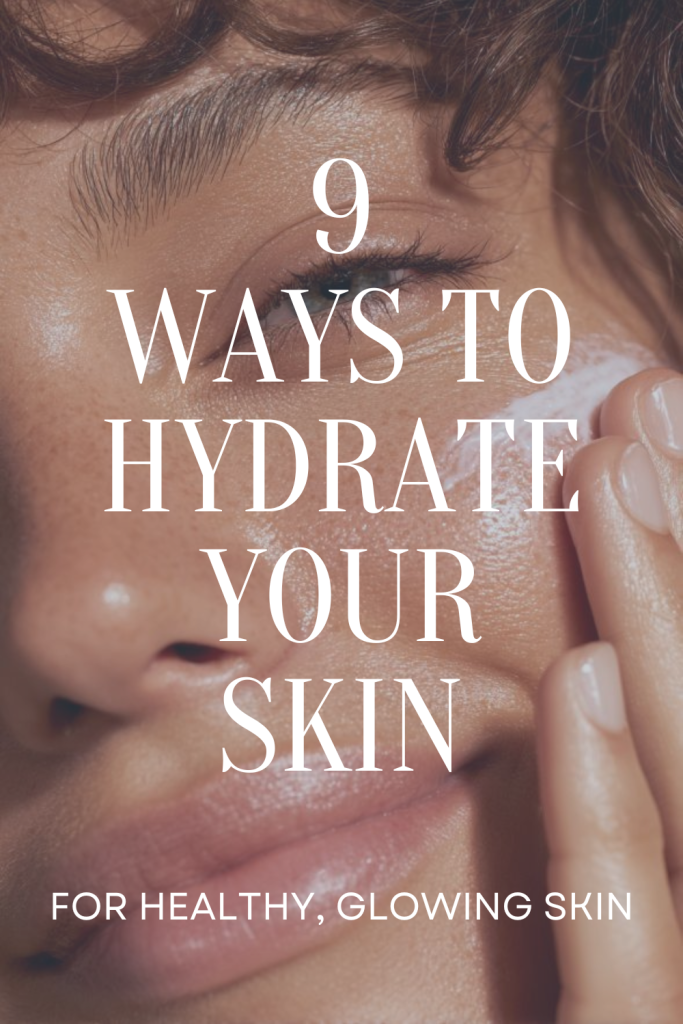
Use Gentle Cleansers
Strong surfactants strip natural oils and damage the skin barrier. Choose gentle cleansers with low pH and hydrating support. If your face feels tight after washing, it’s a sign your cleanser is too harsh.
Always Apply Products to Damp Skin
Applying serums and moisturizers to damp skin helps seal in water and improves absorption—especially when using hyaluronic acid.
Avoid Hot Water
Very hot water removes protective lipids, worsening dry skin. Choose lukewarm instead and limit long showers.
Layer Products from Thinnest to Thickest
Start with toners and serums, follow with moisturizer, and seal with oils or petroleum jelly if needed. This prevents evaporation and increases hydration levels.
Drink Enough Water & Support Skin Internally
Hydration begins inside. Add electrolytes, eat hydrating fruits and vegetables, and avoid excess caffeine and alcohol when you can.
Add a Humidifier
Indoor heat removes ambient moisture. A humidifier helps restore air balance and keeps skin feeling comfortable overnight.
Limit Over-Exfoliation
Too much exfoliation weakens the skin barrier and causes irritation. If you’re cycling exfoliants or retinol, learn how to balance using my guide on how to skin cycle.
Use SPF Daily
Sun damage dehydrates skin and weakens skin cells, leading to premature aging. Wear sunscreen every day, even indoors.
Support the Neck & Décolleté
Thin skin in these areas dehydrates faster. Create a focused routine and explore tightening methods using my post how to tighten the skin on your neck.
Final Thoughts
Learning How to Hydrate Skin is essential for achieving a youthful, strong, and glowing complexion. When you prioritize moisture, you help fortify the skin barrier, improve elasticity, reduce irritation, and enhance the overall skin feeling of comfort and balance. Every skin type, oily, combination, sensitive, and dry, benefits from hydration, and with the right strategy, visible transformation happens quickly.
Remember: hydrated skin reflects light beautifully, feels soft and bouncy, and supports every other part of your skin care routine, including anti-aging, pigmentation control, and makeup performance. Small daily habits and targeted hydrating products make a dramatic difference.
Your winter skin can be healthy, glowing, and so refined, if you give it the care and water it craves.
Shop My Favorite Hydrating Skincare
Don’t forget to pin to save for later!
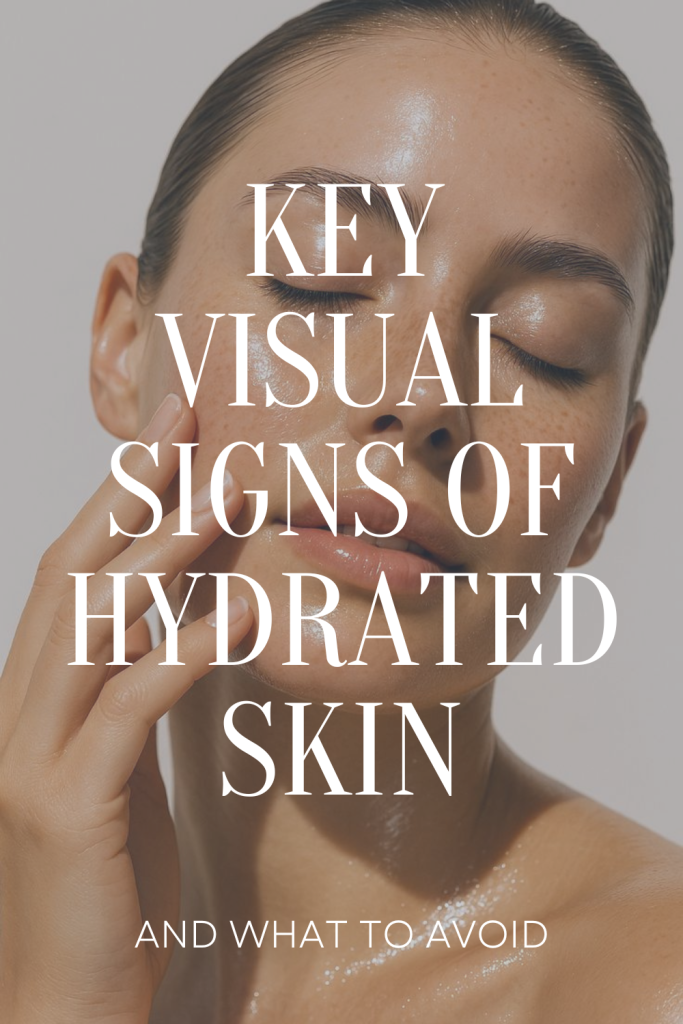
Be sure to check out my most recent posts for more style inspiration!
- 10 Denim and Lace Outfits
- How to Create an Organic Modern Living Room
- Frugal Chic Style: How To Look Effortlessly Expensive On A Budget
- 55 + March Nail Ideas
- 6 Home Decor Color Trends
Please feel free to email me at thegraydetails@gmail.com if you have any questions! I’m always happy to help with styling or picking out a specific outfit for an event! Have an amazing day!!
You can also download the free LIKETOKNOW.IT app and follow me HERE.
STAY IN THE KNOW: Don’t forget to sign up for my exclusive Newsletter for STYLE TIPS, SALE ALERTS, AND MUCH MORE!
As always, thank you so much for stopping by today, I truly appreciate all of you! xx, Amanda
FOLLOW ALONG
Instagram | Pinterest | Facebook | Shop Instagram | You Tube







